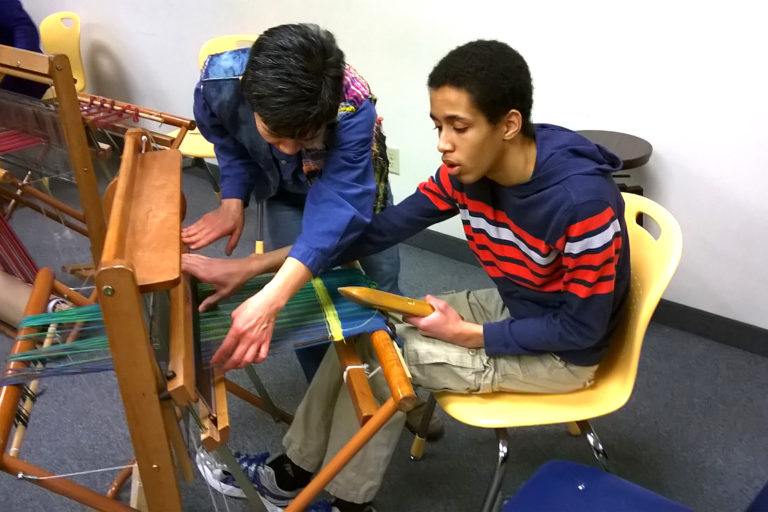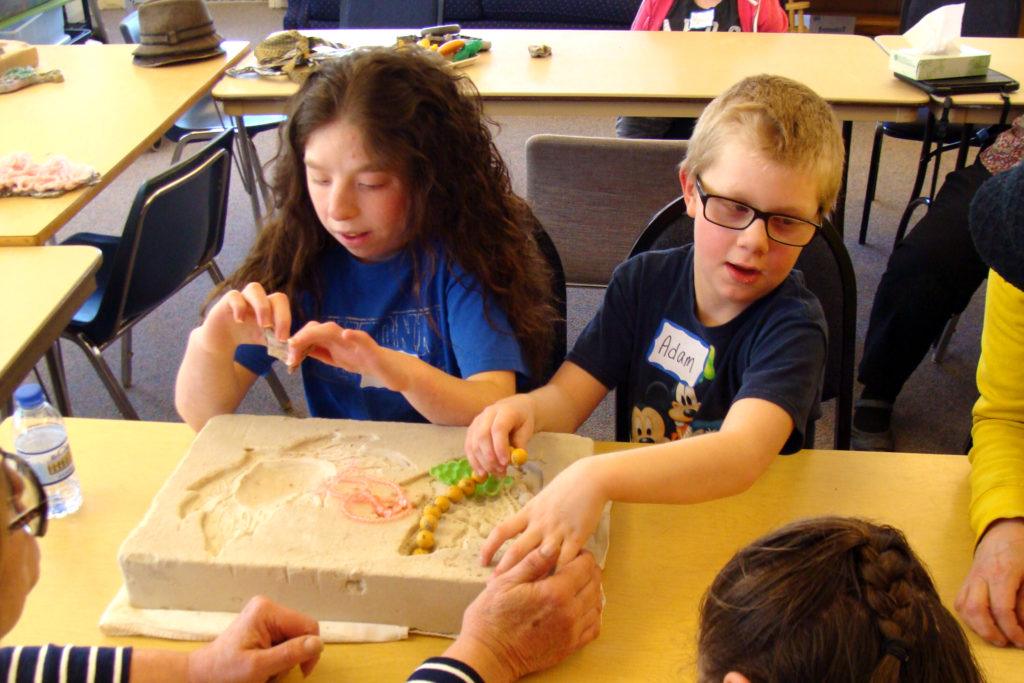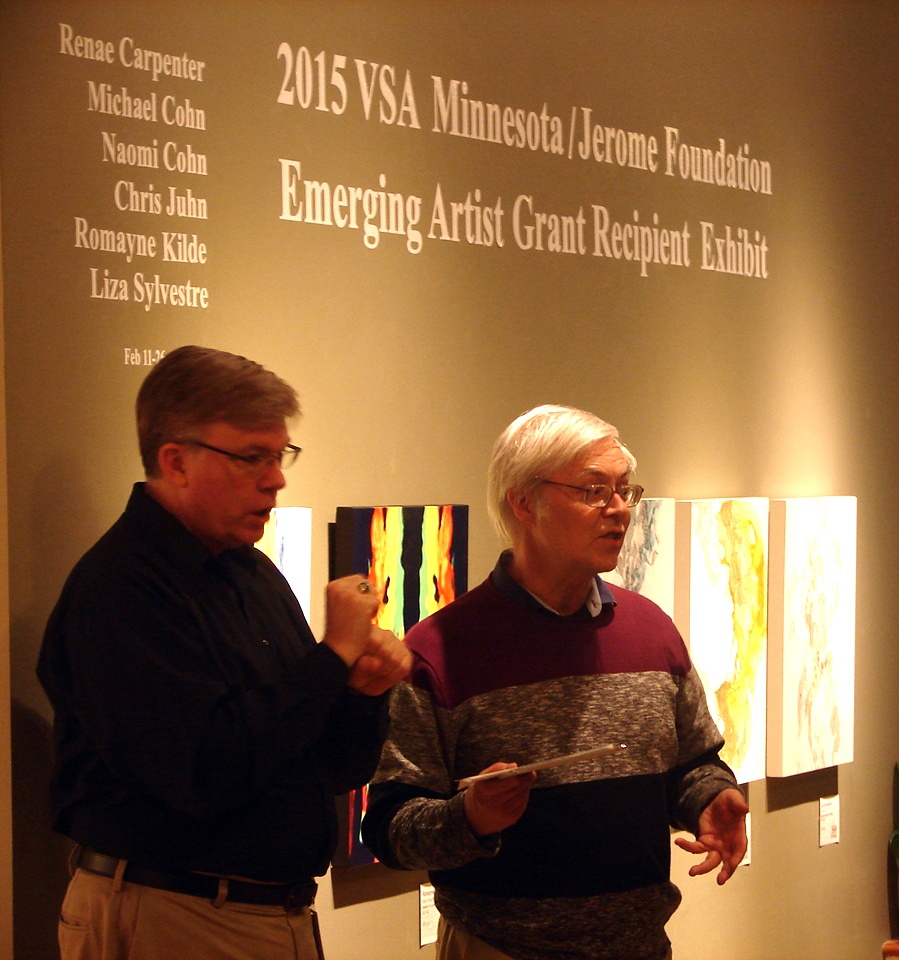VSA Minnesota

While it’s not uncommon for nonprofits to sunset their operations, it’s rare for the process to be transparent, planful, and celebratory. VSA Minnesota, a 33-year old nonprofit working for better access to the arts for people with disabilities, has recently announced it will be closing its doors in the fall of 2019. As the board stated in the announcement, “VSA Minnesota will close with grace, thoughtfulness, and care.”
“Our mission has gotten out there. Individuals, organizations, the press, and others get that yeah, people with disabilities should have access to the arts.”
Craig Dunn, Executive Director, VSA Minnesota
Shedding the Stigma Around Sunsetting
Propel Nonprofits has been working with VSA Minnesota’s for the past year and feels the process the organization took is one the nonprofit sector could benefit from. As Scott Artley said in an insightful piece about the sunsetting of Patrick’s Cabaret, “Even discussing a closure is taboo, so there is little documentation of best practices.” Just like the sunsetting of Patrick’s Cabaret, there is much to be celebrated and much to be learned from VSA’s still-in-process process.
VSA Minnesota’s mission is to create a community where people with disabilities can learn through, participate in, and access the arts. For the past three decades, they’ve been supporting artists with disabilities, bringing art programming to students with special needs, administering a grant program, and connecting communities and artists of all abilities in several different ways. Craig Dunn, who has been VSA’s executive director since 1992, acknowledges that while the organization’s mission has not been fully realized, it has seeped into the way individuals and organizations approach art and culture programming across Minnesota. “Since making the announcement, so many accolades of our work have come back,” Craig said. “This confirms what I’ve thought: our mission has gotten out there. Individuals, organizations, the press, and others get that yeah, people with disabilities should have access to the arts.”
Leading Through Change

Like many organizations, VSA Minnesota has seen its funding streams shift over the years and they’ve adjusted; in transitioning from being under a national umbrella to standing on its own, the importance of individual donors and diversifying philanthropic partners had increased. However, in the face of a couple major funders shifting their funding priorities, the organization was at a point where it once again needed to pivot. The landscape of other organizations doing related work had evolved. There was an upcoming need for a name change given copyright issues with the former umbrella organization. Craig had also announced to the board several years ago that he’d be retiring in 2020. To address changes in funding and the ecosystem at large, as well as to start succession planning, VSA called Propel Nonprofits to start with board development. “Our board turns over every nine years, so we’ve always had fresh perspectives,” said Craig. “However, in almost all cases, our board members have been first-time board members. They hadn’t been through a process like this before.”
Craig wanted to get everyone on the same page about roles, responsibilities, and current business model realities before moving ahead with strategic planning. Propel held a board training and then several more meetings with VSA leadership. “They went into this process very open to all potential paths,” said Jenny Kramm, a strategic services consultant with Propel. “However, when it came time to face hard facts, I was impressed with the courage of the leaders – Craig especially – who demonstrated how to lead through change and uncertainty while keeping the mission at the center.”
In a testament to both the ongoing need for VSA’s programming and the collaborative nature of Minnesota’s nonprofit sector, three stewards were found for three different areas of VSA’s work: COMPAS, Minnesota Regional Arts Council, and Springboard for the Arts. Starting in January, they will all meet to discuss the values that have been driving the work to ensure the ethic of inclusion and equity will live on, even as the programs live in different homes. “We obviously can’t specify how they’re going to implement the programs going forward, but we want to be sure the expectations are clear, that there’s a formal commitment to the program intent,” said Craig.
The nonprofit will also spend the next several months wrapping up programs they have funding for: awarding six $2,000-grants to artists with disabilities, allocating $165,000 to metro arts organization to make access improvements to their space and programs, and to place teaching artists in schools to bring programming to kids with special needs.
From Bargaining to Acceptance
In hindsight, Craig admitted that he’d been going through the phases of grief for VSA as an organization before the decision to close was even made. “I’d been at the bargaining phase for a while,” he observed. “For example, I wasn’t fully paying myself…that was my way to trying to keep us open.” Craig noted that when the board made the decision in October, he’d reached acceptance. Other board and staff remained in stages of denial or depression, which will hopefully evolve through the thoughtful and collaborative handing off of programs. As it winds down, the nonprofit plans to have events and opportunities to celebrate the work that’s been done.

For Craig, bringing art to everyone has been his life’s work, stemming from both an inherent love for the arts (early on, he aspired to be a choir teacher) and a belief in accessibly for all. His education is in music therapy and music education. He started his career working with students with developmental disabilities, and was then on the VSA board before talking the role of executive director. He would have loved to see the work continue, knowing that there’s still a deep need, but he’s heartened by the progress that’s been made.
A Legacy of Connection and Legitimacy in the Arts

Beyond just seeing VSA’s mission absorbed and put into practice across Minnesota, he holds a collection of anecdotes and notes of gratitude from people over the years. “There’s a woman in south Minneapolis who has absolutely nothing to her name in terms of being able to keep a house going and to keep her art going, but in spite of that, she finds a way every day to do art,” Craig stated. “We’ve been able to recognize her with a couple of our grants over the years. She points to us as the only organization that has given her recognition as an artist.”
In some words of advice to other nonprofits, Craig feels acknowledging progress is key, no matter where they’re at in their lifecycle. “Appreciate what you do, work hard at it, and take time to celebrate your victories,” he reminds us all. For now, it’s our turn as a community to appreciate and celebrate the quiet but steady work of VSA Minnesota to make our communities more welcoming and open to all.
See Craig Dunn’s full announcement and follow VSA Minnesota on Facebook over the next few months for opportunities to celebrate the work they’ve done and the artists they’ve worked with. For more information on their decision and process, see the FAQs from the board. Help them reach full hand-off of their programming by giving a final donation here; they’re still trying to raise $20,000 to complete their work by September. Finally, keep the VSA legacy alive by considering the physical accessibility of your space, the stories you are covering, the venues you choose to host events at, the language you use when talking about ability, and the many other ways we can all make sure all artists and communities have access.
Photo credit: VSA Minnesota
Related Services
-
Strategic Consulting
As a leader, you want to make sure your organization has a shared vision for the future, and the strategy to get there. Propel Nonprofits’ consultants are experienced at providing strategic planning, board development, and other strategic services to organizations
